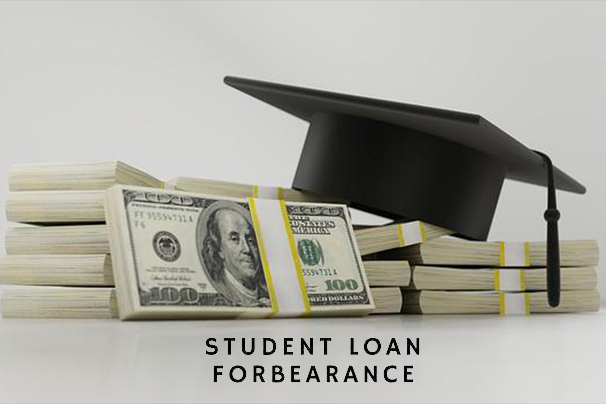What is student loan forbearance? Before we begin, it is important to understand that this is an important financial relief structure that is helpful to borrowers who are unable to pay off their student loans. During personal finance difficulties and complexities, this mechanism can help and be a lighthouse for borrowers.

Unlike deferment, when you can reduce or pause your repayments for a fixed period, forbearance acts as a safety net and assists with an array of financial threats. For a better understanding of what this structure is all about.
What Is Student Loan Forbearance?
Student loan forbearance is a relief option provided by lenders to borrowers who are unable to pay back their student loans by reducing the loan payment amount or suspending it temporarily. Thus, if you are facing financial difficulties and you are not able to pay back your student loan, which is giving you sleepless nights, Student loan forgiveness is the perfect structure for you.
Besides, it gives you room to breathe and immediate relief. Although you enjoy these benefits, the interest rate will continue to pile up on your principal amount during the suspension, making the whole repayment amount increase over time as well.
Types of Student Loan Forbearance
The type of student loan forgiveness that you get depends on the type of student loan and the current situation you have. Now that you know that, here are the types of student loan forbearance:
General Forbearance
This type of student loan forbearance is also known as discretionary forbearance. What’s more, this relief type is determined by the judgment of your federal student loan servicer. In addition to this, you can request a general forbearance if you are experiencing ongoing employment changes, financial hardship, or medical expenses to cover. General forbearance is available for Perkins loans, Direct loans, and FFEL Program loans.
Mandatory Forbearance
If you are qualified or eligible, your student loan lender will compulsorily give you forbearance. Needless to say, if it is National Guard duty, teaching in a position that qualifies you for loan forgiveness for teachers, or medical or dental residency,.
How Does it Work?
The process of student loan forgiveness is very simple. When you get approved for forbearance, your monthly payment amount will be reduced for a certain period, or you can halt your payments. But this usually takes up to 12 months, and it is crucial that you know that your interest rates do not stop when you halt payments. Instead, it accumulates and will be included in your principal balance. That is it.
Pros and cons
Student loan forbearance can be a double-edged sword and comes with advantages and disadvantages. Here are the pros and cons of this mechanism:
Pros
- Flexibility.
- Instant financial relief.
- Credit score protection tool.
- Halts loan default.
Cons
- Increase in interest.
- Short-term solution.
- Limited availability.
- Increased total repayment amount.
- Counts out forgiveness programs.
How to Apply for Student Loan Forbearance
The process of acquiring student loan forgiveness varies among private and federal loan borrowers. For private student loan borrowers, you will need to contact your lender and ask about the available options and how you can apply for them. On the other hand, if you are a federal loan borrower, the procedure is simple. All you need to do is:
- Find out the type of forbearance you are eligible for.
- Download and fill out the forbearance form.
- Prepare all the documents and information for your request.
- Once you are done, submit your form and documents to your loan provider.
- Do not hesitate to reach out if you need more details or have any questions.
Student Loan Forbearance Alternatives
If you do not want to apply for student loan forgiveness, here are some alternatives that you can benefit from:
- Loan forgiveness programs.
- Deferment.
- IDR plan.
- Income-driven repayment plans.
- Refinancing.
- Consolidation.
Exploring these options and understanding how they will affect you in the long run will help you make a good decision that meets your situation and financial goals.
Frequently Asked Questions
Does forbearance hurt your credit score?
No, going into forbearance will not affect your credit score. Besides, this is an official agreement between you and your student loan servicer. Since the lender agrees to the terms, your outstanding payments will not be considered late or missed.
Is it smart to pay student loans during forbearance?
Yes, if you are financially able to, it is smart to continue making payments towards your student loans during a period of forbearance, especially if those payments can be directed towards the principal balance or accrued interest.
Can Forbearance Be Denied?
Yes, your forbearance application can be denied. For general or discretionary forbearance, your application can be denied if you do not meet the eligibility criteria. On the other hand, for mandatory forbearance, just as long as you meet the necessary criteria, your loan provider will grant you forbearance.



